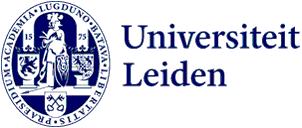
Mark Rutte presented with book about the human dimension
The human dimension must be brought back to the fore, Prime Minister Mark Rutte said in response to the child benefits scandal. But how? A group of researchers – including Leiden psychologist Sandra van Dijk – have written a book offering practical suggestions. They presented the book to Rutte on 28 June.
In Momentum voor de menselijke maat (Momentum for the Human Dimension) different researchers give 15 constructive examples of how to promote custom solutions in the healthcare and social sectors. The book was compiled by Van Dijk, Marcel Canoy (VU Amsterdam) and the Movisie knowledge institute. The 15 examples can serve as practical tips and show that the human dimension can often be given expression despite rather than because of the system.
About the book
During the panel discussion Van Dijk explained that the book is divided into three sections. In the first the authors give five examples of the importance of listening properly and taking a broad view. This prevents narrow-mindedness and makes it easier to focus on the people behind a problem. In the second, optimistically entitled ‘this is how it can be done’, the authors show five creative solutions where custom solutions to difficult situations are offered within the existing restrictive frameworks.
In the third and final section (‘colouring outside the lines’) the authors call for the wider use of lay experts and a reduction in efficiency thinking. All in all the book is ‘a warm plea for a different, more flexible relational human image,’ said Van Dijk. ‘Let’s accept and embrace human diversity.’ But, she warned, this requires administrative and political courage.

Reaction from MPs
After the presentation the authors had a discussion with members of the Senate and the House of Representatives. The first to speak was Aukje de Vries, a VVD MP whose portfolio includes healthcare. Although she expressed her appreciation for the book, she did strike a critical note. The legislator is not always the problem, she said. ‘The government deliberately leaves room for custom solutions, but things go wrong in the further interpretation by the implementing organisations.’ These shut off the wiggle room with all sorts of protocols and forms. She did admit that it is also up to the government to create more room for the human dimension.
Senator Mei Li vos (PvDA) said she was pleased that Mark Rutte and the VVD are enthusiastic about the concept of the human dimension, but also noted that this requires a considerable change of direction. Vos: ‘People don’t seem to realise that this requires a fundamentally different view of humanity, from humans as a calculating homo calculus to a view in which trust is central. I’m all for that, but it requires big political choices. We’ve forgotten that people often have the will but not the way.’
Connecting factor
Van Dijk thinks that this is where the strength lies: ‘The human dimension is a connecting factor from left to right. Everyone agrees that we should bring custom solutions back into our policy. There is momentum therefore to give shape to this concept and for political life to propose solutions.’
In a reaction MP Corinne Ellemeet (GroenLinks) said that personal budgets for vulnerable elderly people are an example of how politics can create room to overcome financial obstacles. ‘A good example comes from Utrecht, where a hospital, healthcare providers and the district nurses meet every month. They discuss the cases, allocate money and look together at how best they can help people.’
Main picture: Prime Minister Mark Rutter receives the book from Sandra van Dijk (left), Janny Bakker-Klein (Chair of the Movisie Board of Directors) and Marcel Canoy (right). Photographer: David van Dam
